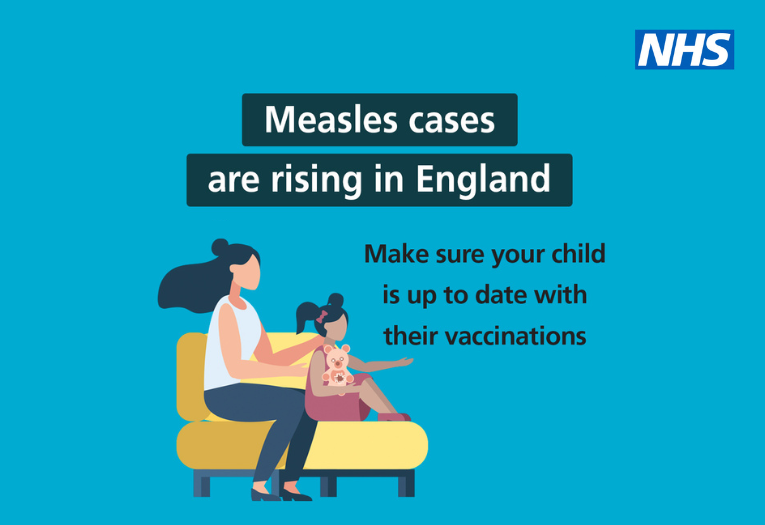Health and wellbeing
Get protected with the MMR vaccine as children return to schools and nurseries
Published on
With the start of the new school term and the continuing rise in measles cases across the West Midlands, parents and carers in Walsall are being urged to ensure their children are up to date with their vaccinations such as MMR (measles, mumps and rubella) as soon as possible.

Measles is a highly infectious disease which can lead to serious complications. In the most severe cases, it can develop into conditions such as pneumonia, meningitis and encephalitis, especially in those with a weakened immune system. Symptoms of measles include a high fever, rash, cough, runny nose and watery eyes.
All children are invited for their first MMR vaccine on the NHS when they turn one. The second dose is given when they reach three years and four months of age. Having two doses of the vaccine provides the best protection against MMR.
Adults and older children can also be vaccinated at any age if they have not been fully vaccinated before and are being encouraged to come forward if they haven’t had two doses.
“ We have seen an increase in the number of measles cases being reported across the West Midlands recently. Getting your children vaccinated against measles, mumps and rubella is the best thing you can do to give them the best protection. I also encourage any adults and older children who have not been fully vaccinated to come forward if they have not had two doses.
At this time of year, we also see a number of illnesses circulate and it’s important to take simple steps alongside vaccination. Use a tissue to catch coughs and sneezes and wash hands with soap and water for at least 20 seconds. If you or your child has a fever and is unwell, try to stay at home until you feel better, but do seek medical advice if you need it. These steps can make a difference in protecting others and the community this winter. “
“ The MMR vaccine is a safe and effective combined vaccine, which protects against three serious illnesses - measles, mumps, and rubella.
Measles is a highly infectious virus which spreads very easily, especially in schools. While most people recover completely within a couple of weeks, measles can cause very serious illness for those in certain at-risk groups including babies and small children, pregnant women and those with weakened immune systems.
There’s no specific medical treatment for measles, so it’s important to get vaccinated as it’s the best protection against becoming seriously unwell. If your child has not yet had the MMR vaccine or hasn’t had both doses, you should call your GP and book an appointment as soon as possible.
Anyone with symptoms is advised to stay at home and phone their GP or NHS 111 for advice, rather than visiting their GP surgery or A&E, to prevent the illness spreading further. “
Parents who are unsure if their child is up to date with all their routine vaccinations should check their child’s Red Book (personal child health record), the NHS App, or contact their GP practice as soon as possible.
For more information on the MMR vaccine, visit the NHS website.
For more information on measles, visit the NHS website.
ENDS
Notes to editor:
- The NHS Black Country Integrated Care Board issued a press release on 10 January 2024 to urge parents in the Black Country to make sure children are up to date with their measles, mumps and rubella (MMR) jab, following an increase in measles in the West Midlands.
- Dudley Public Health have published some short videos about childhood vaccinations in community languages. Visit Let's Get website to find out more.